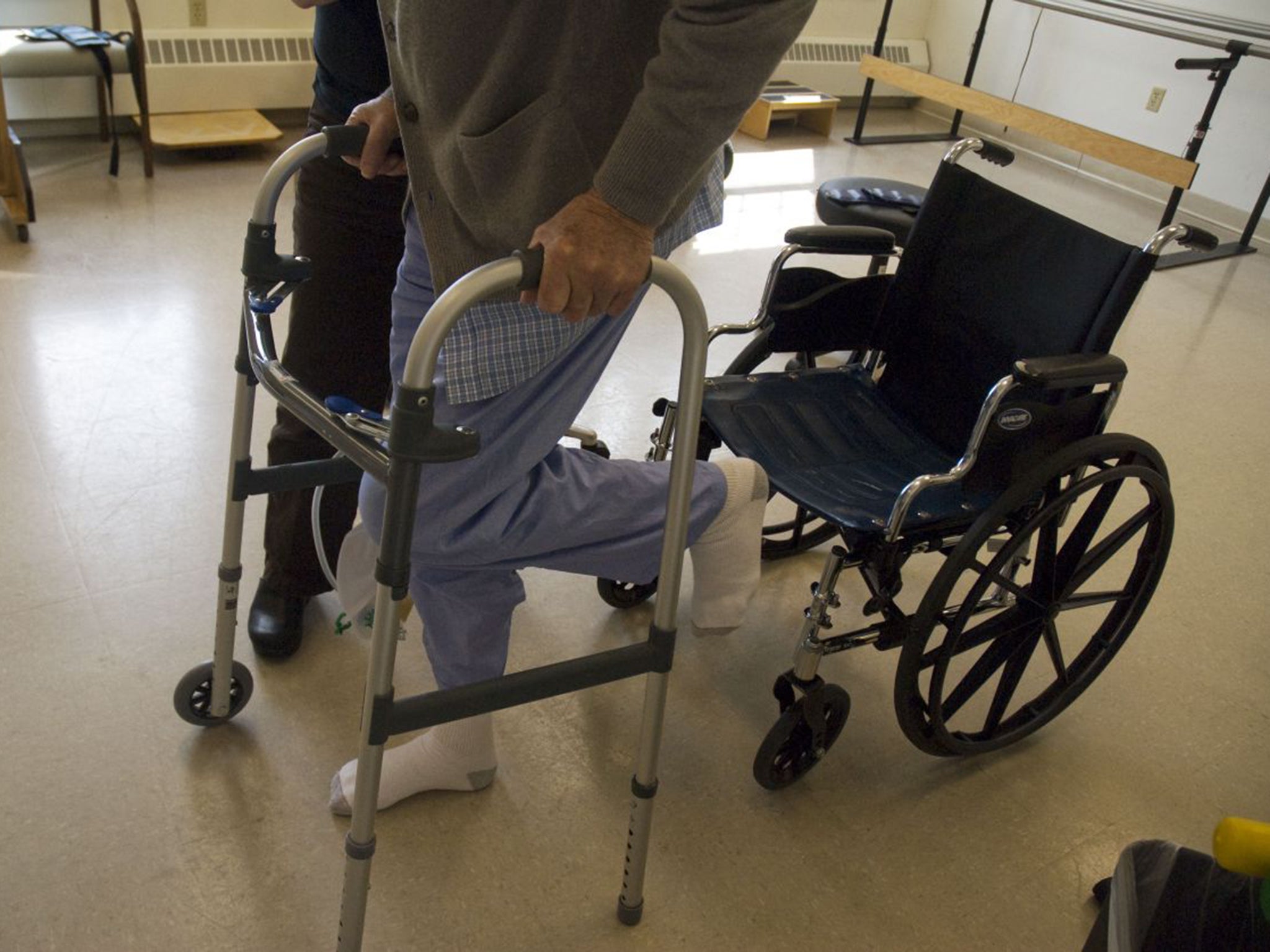Lack of NHS short-term wheelchairs is leaving recovering patients 'prisoners at home'
Report reveals 127 out of 151 services do not provide short-term wheelchairs

Your support helps us to tell the story
From reproductive rights to climate change to Big Tech, The Independent is on the ground when the story is developing. Whether it's investigating the financials of Elon Musk's pro-Trump PAC or producing our latest documentary, 'The A Word', which shines a light on the American women fighting for reproductive rights, we know how important it is to parse out the facts from the messaging.
At such a critical moment in US history, we need reporters on the ground. Your donation allows us to keep sending journalists to speak to both sides of the story.
The Independent is trusted by Americans across the entire political spectrum. And unlike many other quality news outlets, we choose not to lock Americans out of our reporting and analysis with paywalls. We believe quality journalism should be available to everyone, paid for by those who can afford it.
Your support makes all the difference.A growing number of people recovering from injuries and operations are being left “prisoners at home” because the NHS cannot provide wheelchairs on short-term loans, the British Red Cross has said.
Out of 151 NHS wheelchair services, 127 do not provide wheelchairs for short-term use, a new report by the charity identified. The definition of “short-term” varies, but usually means up to six months.
Tens of thousands of people who need a chair to get around during their recovery, and in some cases terminally ill patients who need help in their final weeks and months, turn to charities. The Red Cross, the leading national provider, loaned 83,000 wheelchairs for short periods last year.
However, with an ageing population, demand is growing fast. The charity’s report, Putting the Wheels in Motion, calls on the Government to change the NHS Mandate – the document enshrining the health service’s core goals – to include the provision of short-term mobility services.
The move would put the onus on local NHS commissioners to guarantee short-term help, taking pressure off charities such as the Red Cross, St John Ambulance and Disability Action, amid concern that more people will have to go without a wheelchair for weeks and months at a time, as demand grows.
The NHS is developing new guidance on wheelchair provision. A Department of Health spokesperson said: “The British Red Cross is absolutely right to highlight this issue. Anyone who needs a wheelchair ... for short- or long-term use should expect to get one quickly.”
But with England’s health service under pressure to cut £22bn from its budget by 2020, local commissioners are likely to struggle to find funds for extra provision. Local authorities, whose budgets were slashed by the coalition and who face further cuts, are also unable to help with short-term wheelchair loans in most parts of England, the Red Cross said.

Chloë Carter, policy and advocacy manager at the charity, said that reports from its 250 wheelchair loan sites around the country indicated growing demand. “We’re responding, as a humanitarian organisation, to need in the UK,” she said. “But the UK population is growing and ageing and we are seeing demand for short-term wheelchair loans increasing year-on-year.”
The Red Cross’s mobility aid loans service dates back to the First World War, when the charity stepped in to support injured British servicemen. After the war the service was extended to the general population.
There are no firm estimates on the scale of demand, and the Red Cross said this must be rectified. The report adds that wheelchairs should not be seen just as an expense; they save money by reducing the need for patient transport, shortening hospital stays and lowering the risk of injury.
It pointed to the case of a six-year-old girl, Holly Hamnett, of Sheffield, whose parents borrowed a wheelchair from the Red Cross after she underwent a double hip operation for developmental dysplasia. The charity estimated the loan of the chair saved the public purse £1,434 in transport and home care costs.
Join our commenting forum
Join thought-provoking conversations, follow other Independent readers and see their replies
Comments